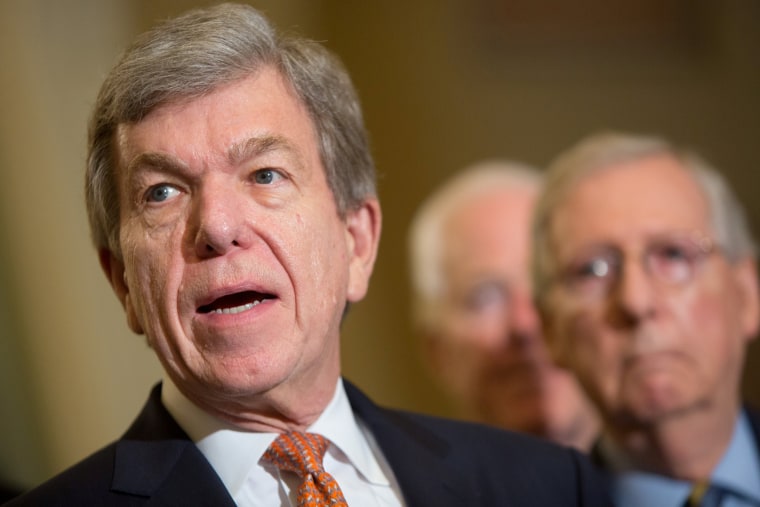As a rule, party leaders on Capitol Hill make every effort to limit incumbent retirements. There's no great mystery as to why: incumbents tend to have built-in advantages in re-election campaigns; wide-open primaries can get awfully messy; and competitive general elections require the parties to invest scarce resources.
But if Senate Republican leaders are trying to discourage their members from retiring, their pitches are apparently proving unpersuasive. The St. Louis Post-Dispatch reported this morning:
In an announcement that instantly shook up Missouri's political landscape, U.S. Sen. Roy Blunt announced Monday morning that he would not run for reelection in 2022.... Blunt's retirement potentially clears the way for a crowded GOP primary in a state that has increasingly shifted toward Republicans over the last decade.
For those keeping score, there are now five Senate Republicans retiring in 2022: Missouri's Blunt, North Carolina's Richard Burr, Ohio's Rob Portman, Alabama's Richard Shelby, and Pennsylvania's Pat Toomey.
That list may yet grow: Wisconsin's Ron Johnson promised voters he'd only serve two terms and he hasn't yet said whether he intends to break his word, and Iowa's Chuck Grassley will be 89 years old on Election Day 2022.
As for Blunt, his retirement announcement comes as something of a surprise. The longtime Missouri politician -- a member of the Senate GOP leadership -- was very likely to win another term next year. His departure opens the door to a crowded Republican primary field, which may include disgraced former Gov. Eric Greitens (R), who's been unsubtle about his interest in the race.
On the Democratic side, the obvious choice would appear to be former Missouri Secretary of State Jason Kander, who came within a few points of defeating Blunt in 2016, but Kander has announced that he has no interest in the race.
Without him, Republicans should be seen as the favorites to hold onto this Senate seat. There was a point in the not-too-distant past at which Missouri was seen as a swing state, but those days are largely over. Consider this tidbit: in the 2020 presidential race, Kansas was more competitive than Missouri for the first time in several decades.
That said, it's best not to make sweeping assumptions, especially this early in the cycle. Former Sen. Claire McCaskill (D-Mo.) was expected to lose in 2012 (right up until Republicans nominated Todd Akin) and Jason Kander was a big underdog in 2016 before losing by only a few points. If, for example, the GOP nominates a disgraced former governor and Democrats settle on a competitive candidate, all while the economy soars thanks to a Democratic economic package that Republicans opposed, a contest like this may yet prove to be interesting.
Update: In case anyone was curious, McCaskill, who is now an MSNBC political analyst, announced this morning that she's not running, either. In a tweet, the former Democratic senator said, "...I will never run for office again. Nope. Not gonna happen. Never. I am so happy I feel guilty sometimes."
